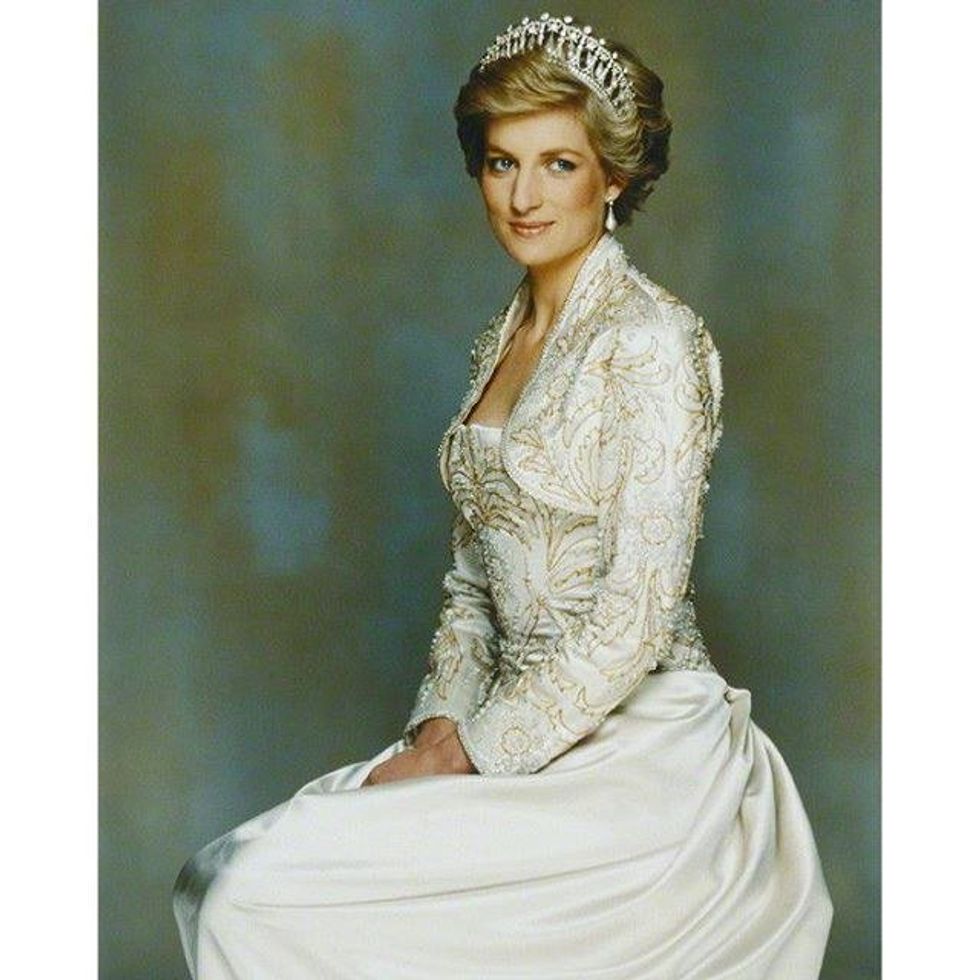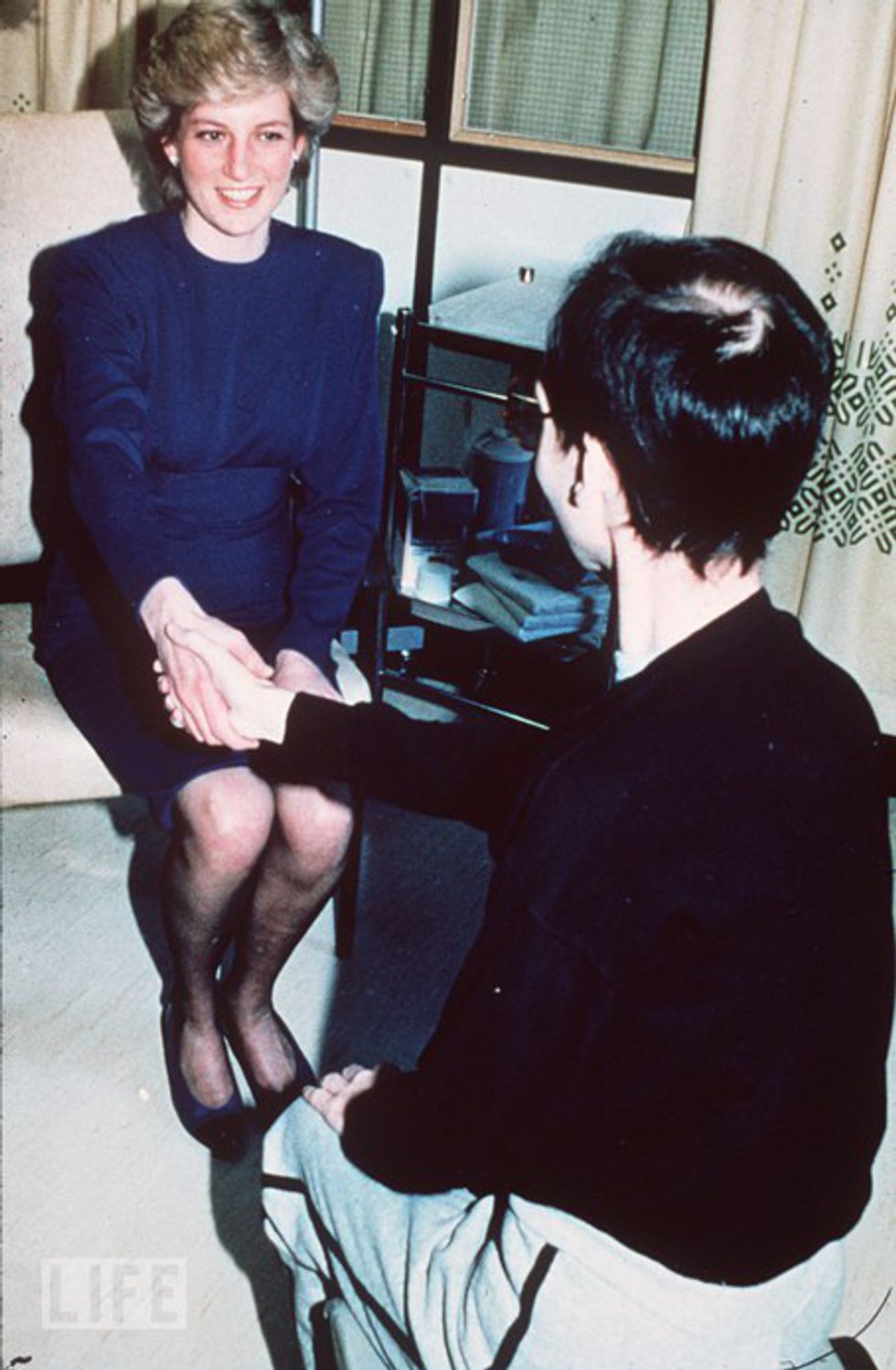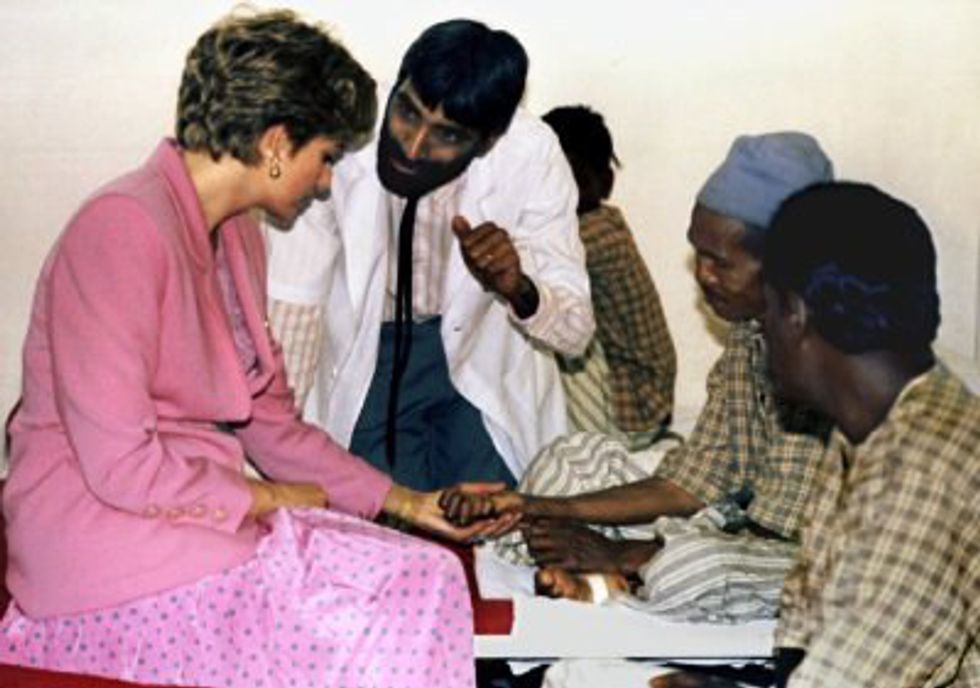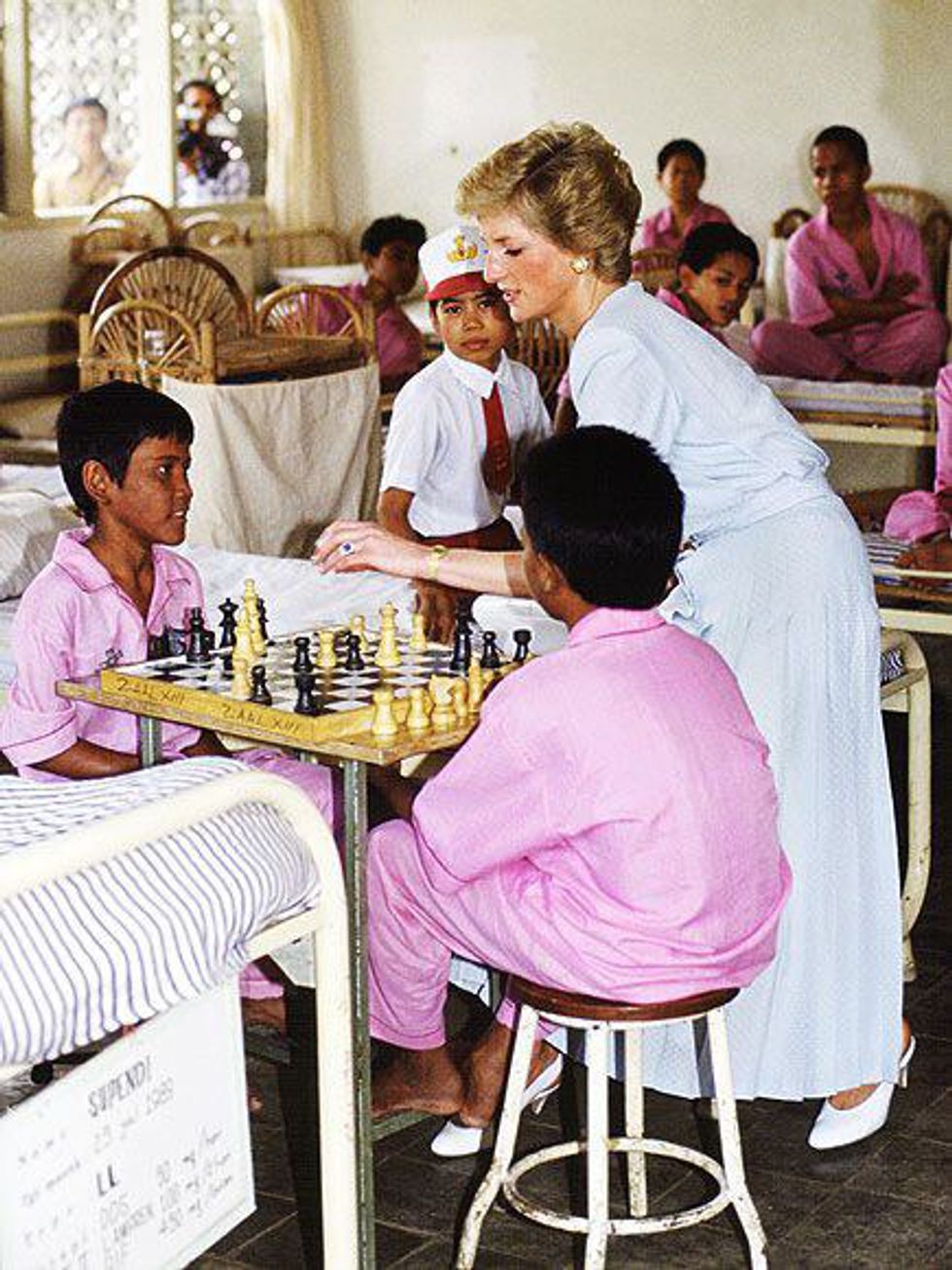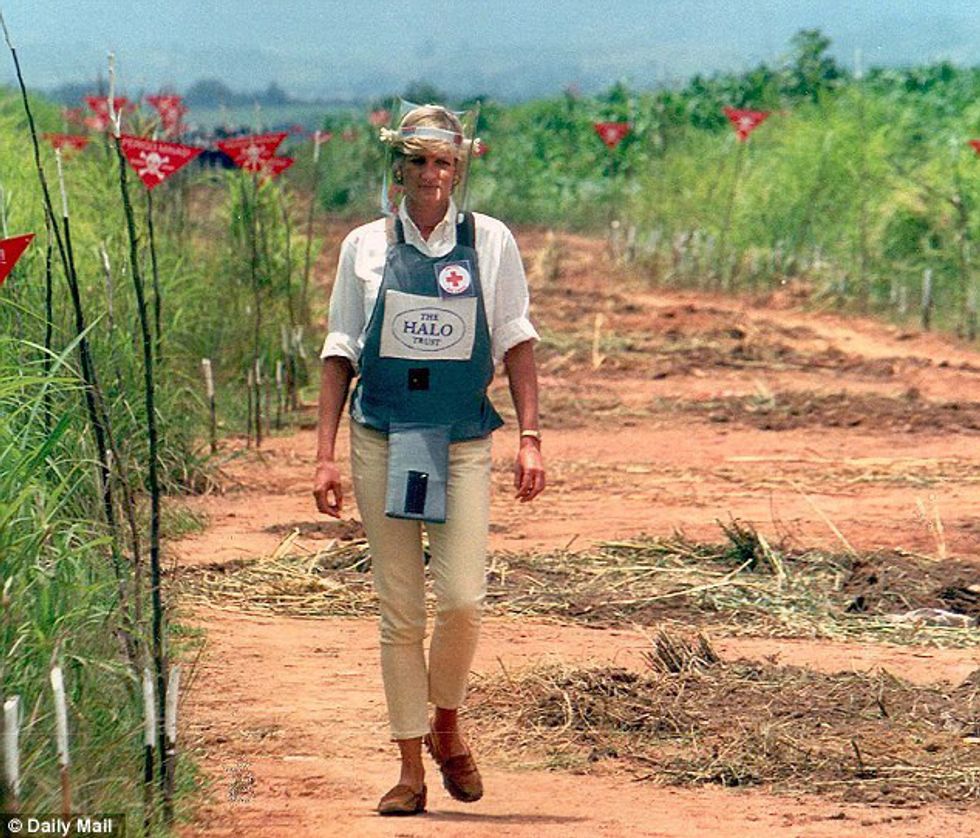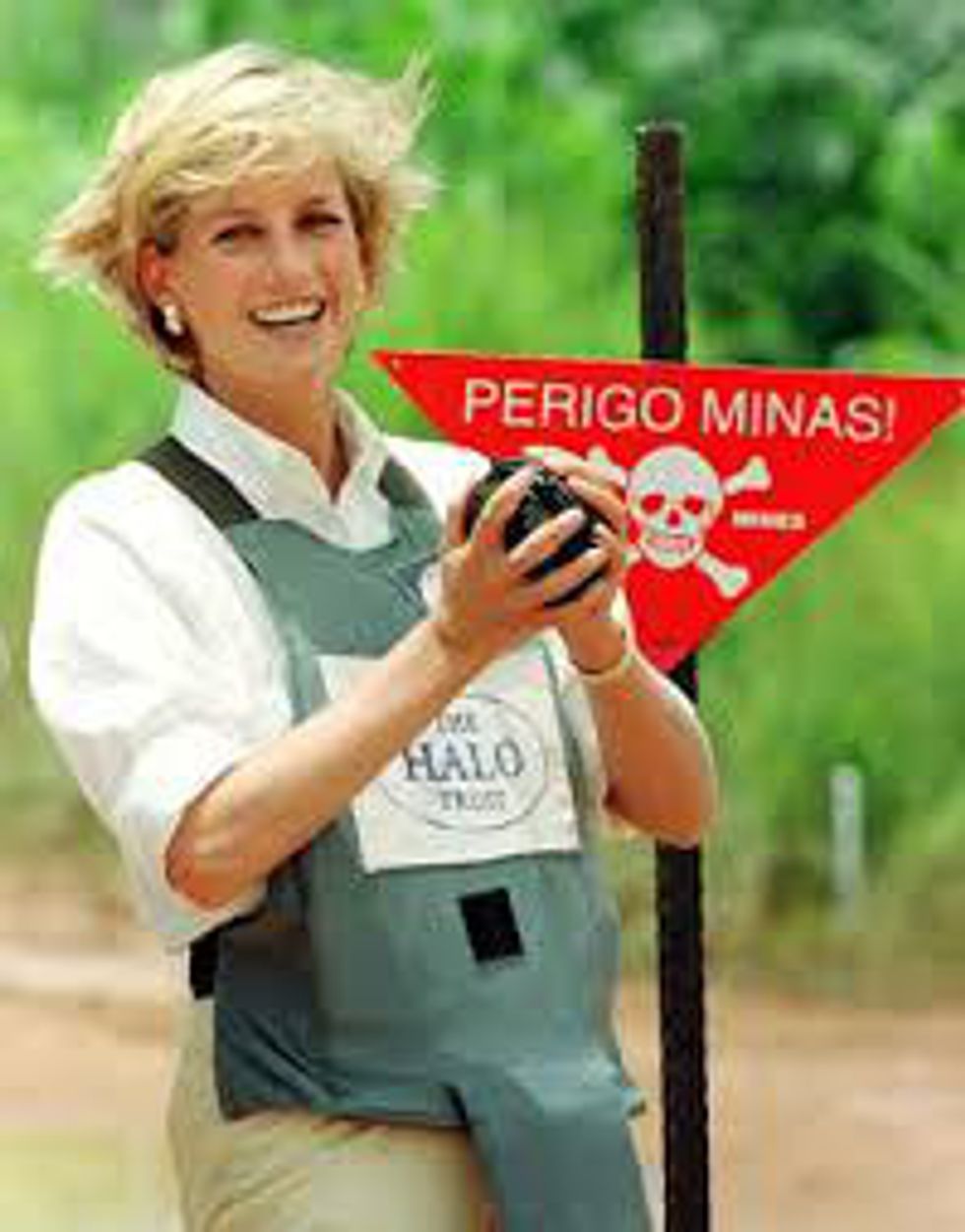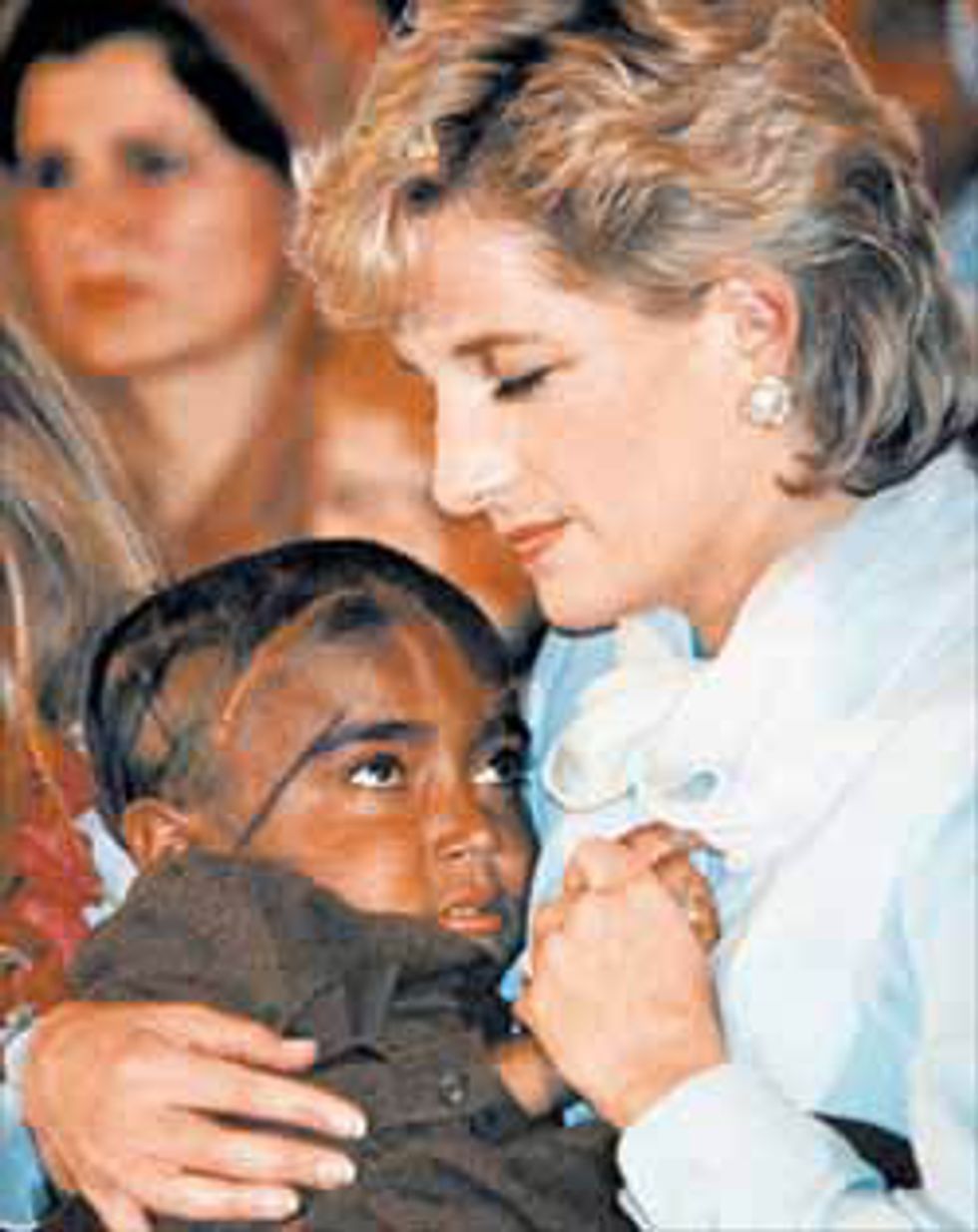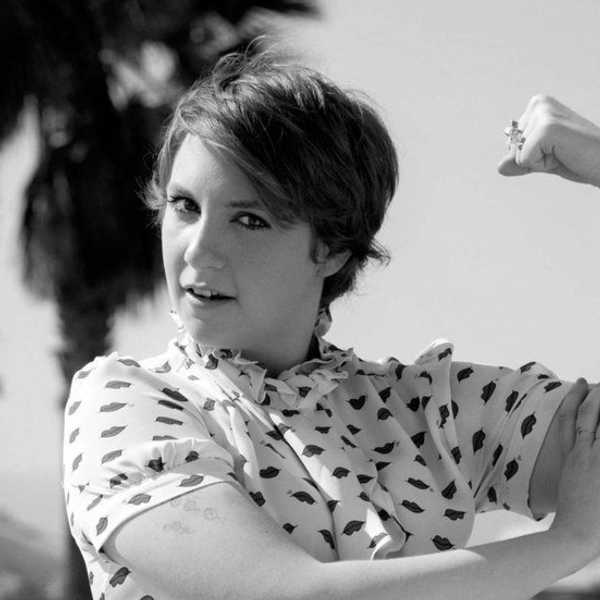Diana, Princess of Wales – The People's Princess, Lady Di, England's Rose – remains one of the most photographed women in the world even 19 years after her untimely death in the tunnels of Paris. Born into the Spencer family, one of the oldest noble families in Great Britain that can trace its ancestry to the Houses of Tudor and Stewart, she was known as The Honorable Lady Diana Spencer from her birth until her fairy-tale wedding in July 1981 to Charles, Prince of Wales, and heir apparent to the British throne. But their happily ever after soon came to an end when they separated in 1992 and officially divorced in 1997. Over the course of her nearly twenty years in the public eye, however, she battled depression, bulimia, and hounding by the press to rise with the grace befitting of a princess and fight for the people who seemed not to have a prayer. In so doing, she was able to completely turn the image of the royal family on its head (for better and worse, on occasion) and challenged the people's perception of the government.
As Princess of Wales, Diana was expected to make frequent appearances in public and maintain an almost constant presence in the public eye, something she had considerable difficulty adjusting to. Even before their wedding, the stress on her began to present itself as bulimia only five weeks into her engagement with His Royal Highness. (And Charles didn’t help at all. For instance, when their engagement was announced and he was asked if he loved her, he responded, “Of course, whatever ‘love’ means.”) She battled through it, and continued to until her death, and became a champion for helping those who needed it most, following the 20th century model of royal patronage. While her efforts included such areas as working with the homeless, drug addicts, youth, and elderly, her most memorable work lies in the areas of HIV/AIDS, leprosy, and landmines.
Beginning in 1987, right in the middle of the AIDS crisis, she was photographed hugging and shaking hands with HIV patients in an attempt to reverse the stigma around them, and said in an interview “HIV does not make people dangerous to know. You can shake their hands and give them a hug. Heaven knows they need it. What's more, you can share their homes, their workplaces, and their playgrounds and toys.” Unfortunately, these efforts were not well met by the rest of the royal family, particularly by Her Majesty, The Queen. In an interview with UK’s Daily Mail, Ken Wharfe- Diana’s former personal bodyguard- said that after meeting with Queen Elizabeth, Diana was incredibly distressed and told him Her Majesty said to do “something more pleasant” with her efforts.
In November 1989, she visited a leprosy hospital in Indonesia, and was photographed interacting with and gently touching the wounds of the patients there, to which she said; "It has always been my concern to touch people with leprosy, trying to show in a simple action that they are not reviled, nor are we repulsed.”
And in January 1997, mere months before her death, she was famously photographed walking through an active minefield in Angola to raise awareness for the victims. In Responding to Landmines: A Modern Tragedy and its Solution, a seminar hosted by the Mines Advocacy Group and Landmines Survivor Network, she said in her keynote address; “I was in Angola in January with the British Red Cross – a country where there are 15 million landmines in a population, Ladies and Gentlemen, of 10 million – with the desire of drawing world attention to this vital, but hitherto largely neglected issue. Some people chose to interpret my visit as a political statement, but it was not, I am not a political figure. As I said at the time, and I’d like to re-iterate now, my interests are humanitarian. Suffice to say, that when you look at the mangled bodies, some of them children, caught by these mines, you marvel at their survival.” While she was not able to live long enough to see the culmination of her spearhead efforts for the Ottawa Treaty, which looks to ban landmines worldwide, was signed by 162 countries (including Afghanistan, France, Germany, the Holy See, Iraq, Italy, and the United Kingdom) in December 1997.
Later, when Foreign Secretary Robin Cook introduced the Second Reading of the Landmines Bill to the British House of Commons in 1998, he paid tribute to her by saying “All Honourable Members will be aware from their postbags of the immense contribution made by Diana, Princess of Wales to bringing home to many of our constituents the human costs of landmines. The best way in which to record our appreciation of her work, and the work of NGOs that have campaigned against landmines, is to pass the Bill, and to pave the way towards a global ban on landmines.”
On September 14, 2016, we celebrated Constitution Day at Middle Tennessee State University. And as a part of that celebration, renowned civil rights activist Diane Nash gave a lecture entitled “Say No to Oppression,” which documented her thoughts, experiences, and advice from the nonviolent (which she referred to as “agapic energy”) Civil Rights movement. According to my notes, somewhere toward the middle of the lecture she said three very powerful things that really struck me (and provided the inspiration for this article); “Very often we give away our power…,” “The Civil Rights movement was not led by Martin Luther King, Jr, but was led by the people in the movement,” and “The government for the people has perished, and has been replaced by the government of the corporation; the chance to revive it is to take on our responsibilities as citizens.” She’s definitely not wrong. If you don’t believe me, just look at the presidential candidates for 2016; The Republican nominee is one of the biggest real-estate moguls in the world and is today’s equivalent of a G. W. Vanderbilt or John D. Rockefeller (after Bill Gates anyway), and the Democratic nominee has received Lord knows how much in-pocket and donation money as compensation for speeches from big business cronies like Goldman Sachs.
For years upon years there have been conspiracy theories about “the government threatening to do this," or “the government threatening to do that,” but this simply is not the case. The government only has as much power as the people give it. As Princess Diana showed, you can take things into your own hands and make a real change in the lives of people. Though really, this can be done in the simplest of ways, even if it’s offering something as simple as a handshake, a smile, or a hug.



